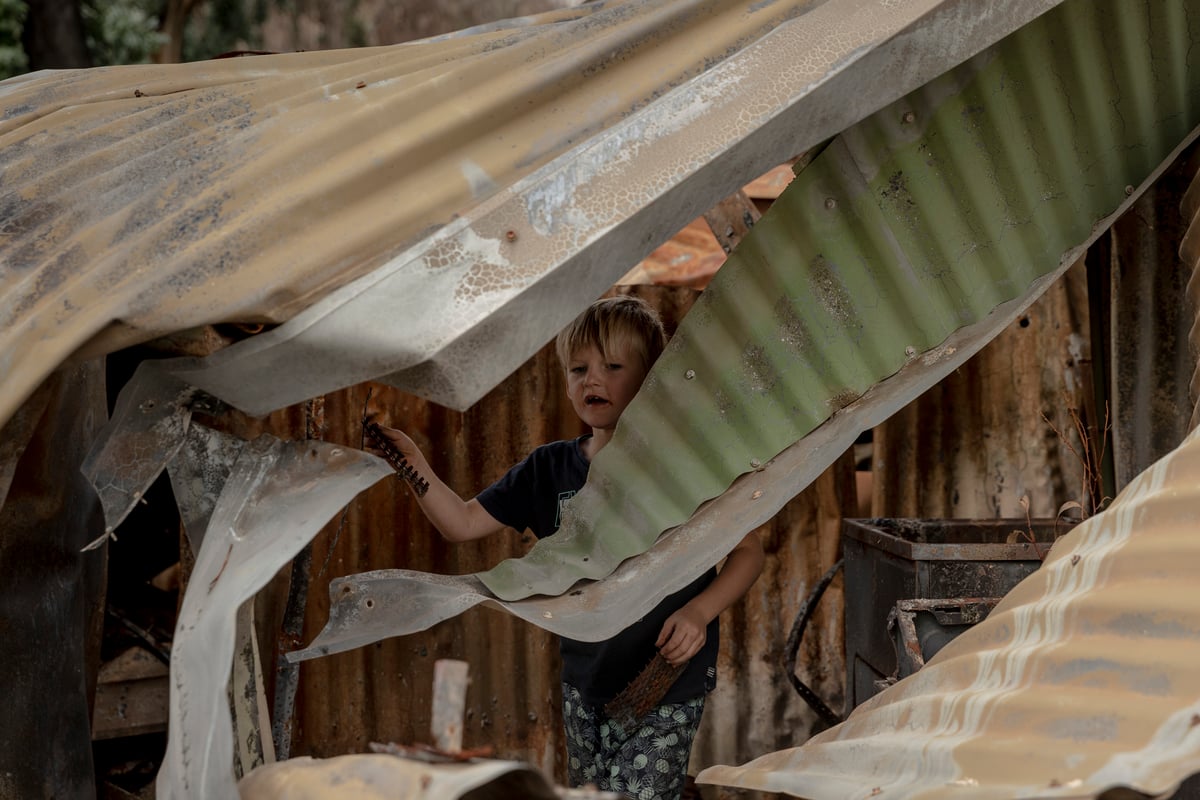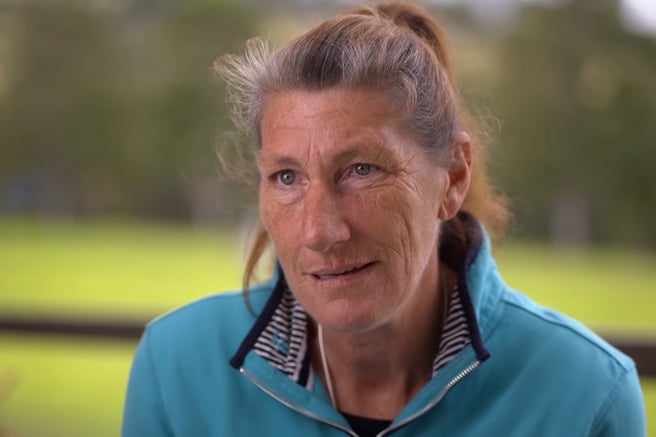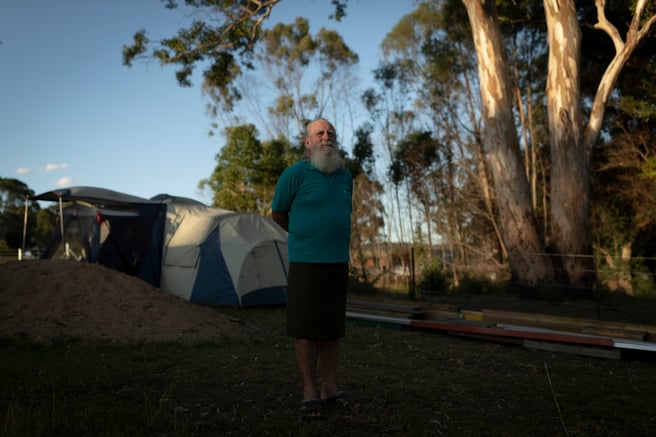
It's been six months since bushfires tore through family farms, communities, and towns, as Australia suffered through the worst bushfire season in our history.
As the news cycle has moved on to the next crisis, a global pandemic, Australians in regional towns across NSW and Victoria continue to quietly struggle, everyday, as they rebuild their lives in wake of the inconceivable damage left behind.
Thousands of people now live in caravans or tents, where they survive without the basic necessities including water, heating and toilets.
On Monday night, ABC's Four Corners investigated how the residents of Cobargo are dealing with the aftermath of the black summer.
Watch the trailer for the Four Corners episode on the recovery of the bushfires here. Post continues below.
On New Year's Eve, Cobargo was one of the towns on NSW's south coast that was engulfed with red skies as a firestorm decimated their homes and businesses.
Six months on, there is no running water. The town predominantly relies on water tanks that are donated.


